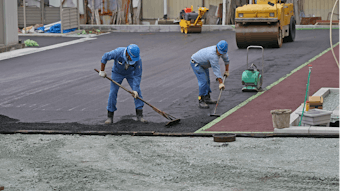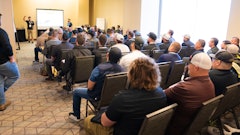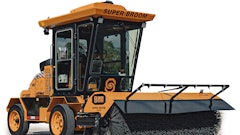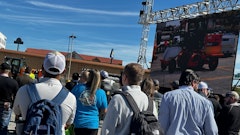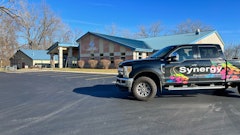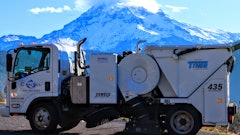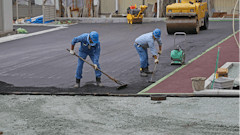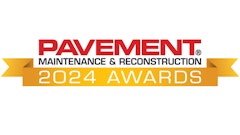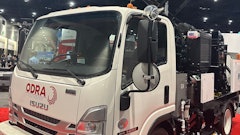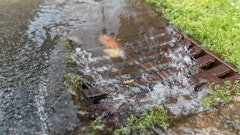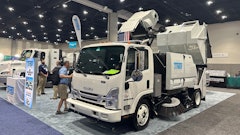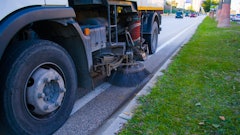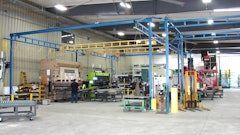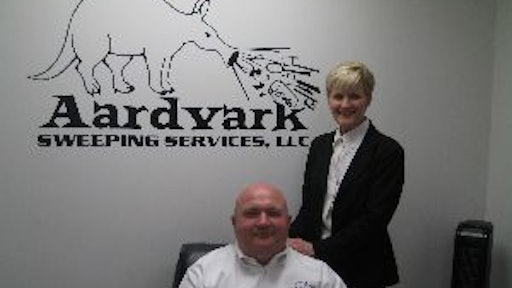
Carl Barton, president of Aardvark Sweeping Service, Memphis, TN, is well into his first year as president of the North American Power Sweeping Association (NAPSA), and part of what he hopes to do during his term is instill in other contract sweepers some of what Aardvark Sweeping does on a daily basis.
"Very few companies help the sweeping industry by expanding their category," Barton says. "Most people chase work by lowering their price and then we all end up fighting over the same little anthill.
"At Aardvark Sweeping we don't look at the sweeping business that way. We look at our market and we see there's pavement all over the place and it all needs to be swept. Now, the owners and managers of that pavement might not realize it needs to be swept and that's where our job comes in. We talk with them and try to educate them on what sweeping can do for them and in that way we not only obtain new customers but we're expanding the market. We're not interested in fighting over the same little anthill."
Barton says his sales force regularly targets commercial customers who never have had their parking lot swept before, talking with them about why they need to sweep.
"That's how we managed to grow," Barton says. "Most people don't know why they need to sweep. They think it's because of the trash, but the trash is the least important reason they need to sweep and we talk with them about that. We tell them they need to sweep because of asset management, because of risk management, because of the environment, and then we talk about the aesthetics of the property.
"We talk with them and tell them if they want their pavement, their sealcoating, their striping to last longer they need to sweep because the material left on the pavement acts as an abrasive and wears down the surface," Barton says. "We also talk with them about stopping times for semis, that if you have dirt and grit on the pavement surface it takes a greater distance for a semi-truck hauling a trailer to stop than if the pavement is free of grit and sand.
"A good bunch of my business is outside the retail sector and a good chunk of those weren't sweeping before we talked with them," Barton says. "It's a longer sell, yes, but it's expanding the market and educating the customer and doing everybody in the sweeping industry a service by expanding the category."
"We've used this approach since the 'get go.' It's not an easy sell and sometimes we're talking on and off with a property manager for a couple of years, but often they come around and then we not only expand the market but we expand it at our price, for what we need to earn to perform the quality job and provide the customer service we promise."
Barton also says that Aardvark Sweeping is good at saying "No," and that other contractors could add more frequent use of that word to their vocabulary.
"As an industry we're not good at saying 'No.' We're terrible at saying 'No'," he says. "I've had a number of prospects I've called on over the years who have told me 'You can start sweeping this lot tonight if you'll do it for X dollars.' But I've told them, and I still tell them, that I'm sorry but I can't provide my service for that kind of money and we turn the work down. We've walked away from numerous opportunities because the price wasn't there.
"What's funny is how many of those property managers eventually find their way back to us and hire us to do their sweeping for them," Barton says.
We have a saying around here: "Volume without Profit is a Sin."
"When we started in business we took on some properties too cheap, but eventually, and it didn't take long, eventually we went back to them and said "Here's what we're doing for you and here's what you're paying us to do that. Here's what we need as a company to provide that level of service for you. How can we get it to where it should be?'
Barton says that often those properties find their way back to Aardvark Sweeping Service. "When that does happen it's because they have recognized the value of the service and we were able to work things out," Barton says. "Not always, but often."
Barton adds that contract sweeper also should take advantage of property sales to correct any pricing mistakes they might have made.
"When a property is sold - and all properties sell over a period of time -- we fix the price in the new contract," he says.
"Pricing your work low out of ignorance is something you learn from; pricing it low to obtain work or to keep work from somebody else is just not good business," he says.
Pricing work too low not only affects one company on that one contract, it helps establish a sweeping price in a market when property managers compare notes. But worse than that, a low price for sweeping becomes part of the cost structure of the property and it will be very difficult to raise that price where it needs to be in the future.
"Property managers are creatures of budgets and next year's budget is based on this year's budget, which was based on last year's budget," Barton says. "So if a sweeper goes in with a low-ball price and the property manager buys the service at that price, that's the number he's going to be working from in the next budget and it's very difficult to get him to increase that line item."
Barton says that Aardvark Sweeping has instituted a price increase every year.
"We might have lost one customer a year," Barton says. "But too many people look only at that lost customer. Too many people don't think about the cost of not getting that price increase."

